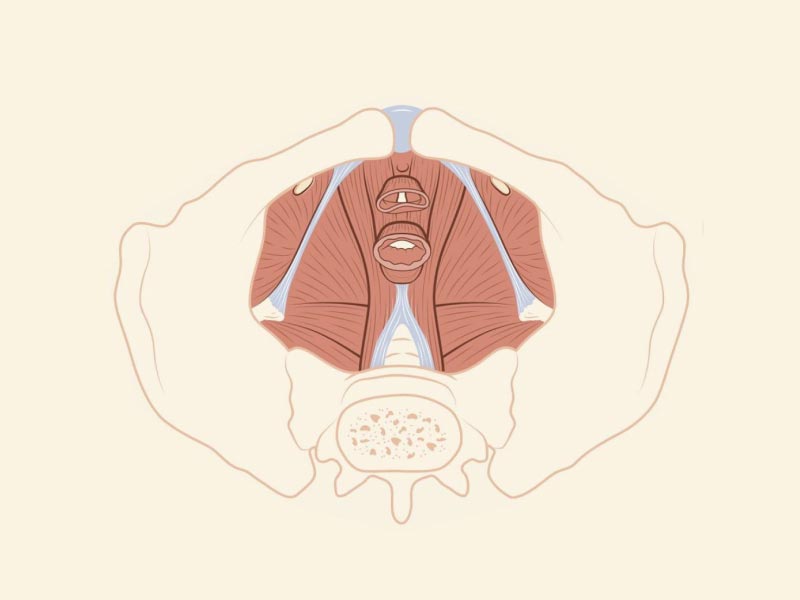
March is Women’s History
Month
By Dr. Penelope Neckowitz
March 7, 2023
Penelope Neckowitz, PhD is a licensed psychologist and therapist, a certified Erotic Blueprint Coach™, an Embodied Female Pleasure™ facilitator, and a long time pleasure researcher and pleasure activist. She is committed to helping women connect to their erotic life force energy and live more freely with less shame and greater freedom of expression. You can learn more on her website https://www.penelopeneckowitz.com/.
I dedicate this to all my sisters who walk beside me, those who have walked before me, and to all those remarkable women who have been instrumental in paving the way for us in our journeys. Some have been more quiet in their efforts, while other trailblazing pioneers have daringly played a vital role in their advocacy to make a difference for all women. The 2023 National Women’s History Theme is “Celebrating Women Who Tell Our Stories.” Let us honor women who have devoted their lives to promoting understanding, truth, inclusion and connection.
Today, we celebrate those brave women pioneers who have risked a great deal with their activism and their voices to create pathways for us to connect more deeply to our sexuality and to claim our pleasure as a right.
Sexuality for women in America has been controlled and challenged throughout history, from the repressive nature of Puritan culture to “slut-shaming” of current times. The landscape for female sexuality and women’s bodily autonomy has been fraught—the recent Supreme Court ruling around abortion has set us back tremendously.
Even as sexual wellness, sexual health, and sexual fulfillment move to the forefront of cultural conversations, the push to regress is just as strong. Representation of diverse genders and sexual orientations is more visible than ever before, even as the safety of LGBTQIA communities remains under threat and gay and trans humans struggle to have their voices heard and honored.
Make no mistake, the health and safety of all women is inextricably linked to the health and safety of these marginalized communities—the same powers that would seek to silence and control don’t discriminate.
Women making reproductive health history
Let’s take a look at some of the women who have been instrumental in using their voices to help us achieve greater sexual liberation, and who have committed their lives to taking the shame and stigma out of having sex and being sexual. Without them, we wouldn’t be where we are today.
Emma Goldman (1869-1940) and Margaret Sanger (1879-1966) were active during the time of “first-wave feminism.” They were considered to be anarchists who lectured on free love and contraceptionat a time when these topics were highly unpopular politically and considered “obscene,” even criminal, and each of them were arrested for their outreach activities. In 1912 Sanger wrote What Every Girl Should Know, her attempt to educate children about sex and their bodies. Sanger went on to found the American Birth Control League in 1921, which later became Planned Parenthood.
Both Goldman and Sanger pioneered the way for women to be in control of their own bodies and to have as much or as little sex as they desired, liberating them from the fear of unwanted pregnancies (and separating sexual pleasure from reproduction). By 1936, these efforts led to a court ruling that it was no longer considered “obscene” to use or talk about birth control. (Note: at that time, birth control information was legal only in New York, Vermont, and Connecticut—it wasn’t until 30 years later that those rights extended to the rest of the US and birth control was only legal for married couples until the 70’s!)
Helen Gurley Brown (1922-2012) wrote Sex and the Single Girl in 1962 which promoted women’s right for sexual freedom, regardless of marital status, at a time when birth control was still illegal for unmarried women. The book was initially published without the chapter on birth control!
Virginia Johnson (1925-2013),along with William Masters, did groundbreaking research on sexuality and the sexual response in both women and men. Their research and book Human Sexual Response was instrumental in introducing the clitoral orgasm and the notion that women can have multiple orgasms during a single sexual experience.
Shere Hite (1942-2020) is known for The Hite Report on Female Sexuality, published in 1976. This groundbreaking work was based on over 3000 questionnaires filled out by women about all aspects of their sexual lives, including anatomy, experiences and orgasms. Her work was highly controversial and later criticized for her statistical reporting, but it was a watershed for many women who felt reassured by reading other women’s candid experiences and opinions about sex and pleasure.
Two women noted for their advocacy for women’s orgasms and pleasure are Dell Williams (1922-2015), who founded Eve’s Garden in New York City in 1974, the first feminist, female-owned and operated sex toy business in the United States, and Joani Blank (1937-2016), who founded the Good Vibrations Sex Store in 1977 in San Francisco, the second female run, feminist oriented sex toy shop in America. Both wanted a place where women could more freely and without shame buy sex toys and educated women about the use of vibrators for pleasure and orgasm.
Loretta Ross (born 1953) has been an advocate for reproductive justice, especially for women of color, and in 1994, she co-founded the SisterSong Women of Color Reproductive Justice Collective, attempting to build a human rights movement that was inclusive of everyone. In 2004, she co-founded the March for Women’s Lives, which was the largest protest march at the time, and which championed reproductive healthcare and access.
Betty Dodson (1929-2020) was a sex-positive feminist sex educator known for her 60 years of teaching, writing, and workshops encouraging women to connect to pleasure through self-pleasure. She was an artist by training and exhibited erotic art in NY, also hosting “consciousness-raising” groups for women to learn about their anatomies and normalizing the beauty of vulvas being different sizes, shapes and colors. Betty’s book, Sex for One: The Joy of Self-Loving, was first published in 1986 after originally being self-published as Liberating Masturbation: A Meditation on Self-Love in 1974. Her emphasis on shame-free masturbation was her way of teaching women to be less sexually dependent on a man for pleasure. She started “BodySex” group masturbation workshops in the 70’s and held them again for women in 2013. Dodson was a true advocate for women and their right to sexual pleasure.
Eve Ensler, (born 1953) who now goes by “V,”is a feminist author, playwright and activist whose play The Vagina Monologues (based on interviews with over 200 women talking about their vaginas) was groundbreaking because many women had never been asked about their vaginas or even looked at them up close. In 2004, the play was performed with an all transgender cast, with Ensler’s intention of promoting visibility of transwomen, regardless of anatomy. For this version of the play, Ensler wrote a new monologue using narratives from the transgender cast called They Beat the Girl Out of My Boy. . . Or So They Tried.
V used her work to address the social stigma surrounding rape and abuse and the embarrassment, shame, pain, and fear women often feel in relationship to their sexuality. Her work has gained tremendous momentum for the worldwide global non-profit organization, the V-Day movement, addressing violence against women.
Sylvia Rivera (1951-2002) was a queer, Latina advocate for marginalized, gender-nonconforming humans and Marsha P. Johnson (1945-1992) was a black trans woman activist and sex worker who worked to include transgender humans in the gay liberation movement (LGBT) movement in the 70’s. Together, they supported trans women, homeless youth and drag queens, co-founding STAR (Street Transvestite Action Revolutionaries).Both are noted for their advocacy of inclusion and equality of transgender humans. We owe gratitude to Rivera for her work opposing the exclusion of trans humans in New York’s Sexual Orientation Non-Discrimination Act (2002), protecting gender identity and gender expression under NY’s Human Rights Law.
Audre Lorde (1934-1992) described herself as a “black, lesbian, feminist, socialist, mother, warrior, poet, pioneer, lover," whose life was dedicated to confronting issues of injustice connected to homophobia, sexism, racism, sexism, and classism. Lorde was associated with the Third Wave of Feminism, which emerged in the 90’s and was critical of early feminist thinking and the way it minimized sexual, racial and class differences. Lorde’s book Sister Outsider championed a more inclusive feminist movement, acknowledging the value of all women, not just white women and the celebration of diversity and difference.
We are living in a time where women’s voices need to be heard. So, let’s honor all of these amazing women, and our own amazingness as we, each in our own ways, tell our unique stories… for it is in the passing down of our stories and our experiences that we also find our connections with each other, become change agents for those coming after us, and know and remember that we too are remarkable!

